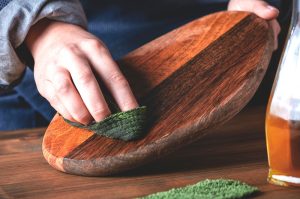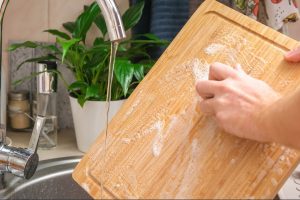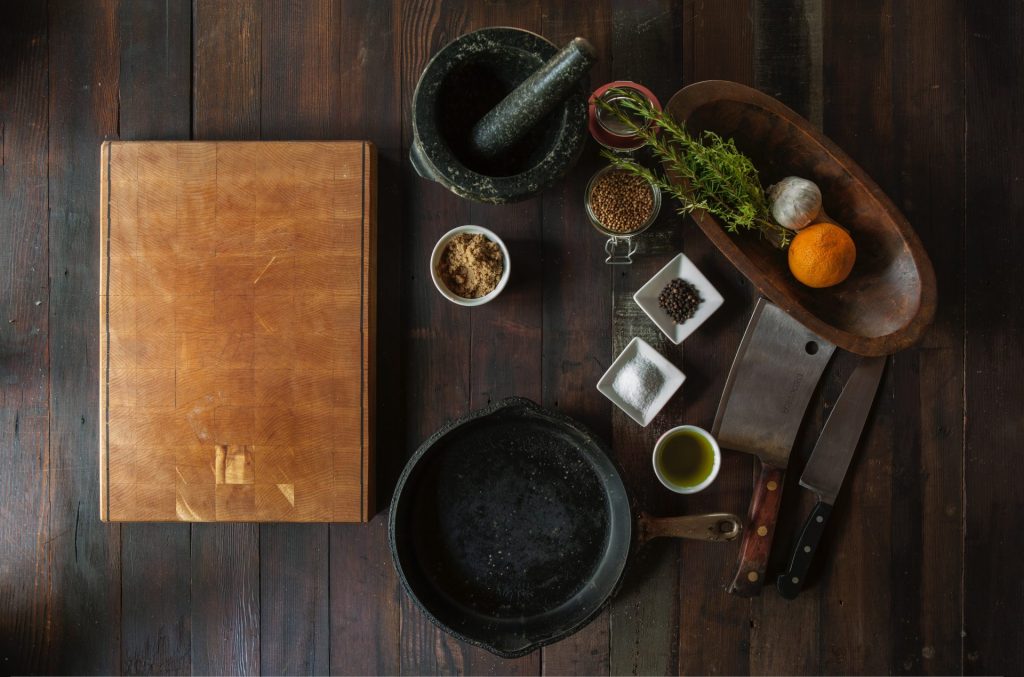Are you searching for the perfect cutting board to serve your guests’ delicious meals? Look no further because this article will explore the age-old debate of wood vs. plastic cutting boards.
Discover the durability and longevity of each option, as well as the critical factors of hygiene and sanitation.
Furthermore, learn the best practices for maintenance and care to ensure your cutting board serves you and your guests for years.
Let’s dive in!
Key Takeaways
- Wooden cutting boards are more durable and last longer than plastic ones.
- Wooden cutting boards have natural antimicrobial properties, making them a hygienic choice.
- Plastic cutting boards can easily harbor bacteria if not cleaned properly and develop grooves and scratches that make thorough cleaning difficult.
- Proper maintenance, such as regular oiling for wooden cutting boards and replacing heavily scratched plastic cutting boards, is crucial for maintaining hygiene and effectiveness.
Wood vs. Plastic Cutting Board: Durability and Longevity
Wooden cutting boards are typically more durable and longer-lasting than plastic ones. Regarding durability, wood has a natural strength that can withstand the test of time. Unlike plastic, which can easily chip or crack, wooden cutting boards can absorb the impact of sharp knives without showing signs of wear and tear.
This means you can confidently chop, dice, and slice to your heart’s content without worrying about damaging your cutting board. Wood has natural antimicrobial properties that help prevent bacteria growth, making it a hygienic choice for a kitchen tool.
So, if you desire a cutting board that will serve you well for years, a wooden one is the way to go.
Wood vs. Plastic Cutting Board: Hygiene and Sanitation

Bacteria can contaminate a plastic cutting board if you don’t clean it properly. Plastic cutting boards have a higher risk of harboring bacteria because knife cuts can create grooves where bacteria can hide and multiply. Additionally, plastic boards can develop deep scratches over time, making them even more difficult to clean thoroughly.
On the other hand, wood cutting boards have natural antimicrobial properties that can help inhibit the growth of bacteria. Their porous surface absorbs the bacteria, trapping them inside and preventing them from spreading.
Regularly cleaning and oiling your wood cutting board can maintain its hygienic qualities and prolong its lifespan, ensuring safe and healthy food preparation for those you serve.
Wood vs. Plastic Cutting Board: Maintenance and Care

Taking proper care of your cutting board is essential for its longevity and effectiveness in the kitchen. Whether it’s Wood vs. Plastic cutting board, maintenance is vital to ensure it stays in good condition.
It is important to regularly oil wood cutting boards with food-grade mineral oil to prevent drying and cracking. Additionally, wash them with mild soap and warm water after each use, and avoid soaking them in water or putting them in the dishwasher.
Plastic cutting boards, on the other hand, are easier to clean as they can be washed in the dishwasher. However, replacing them when they become heavily scratched is essential, as those scratches can harbor bacteria.
Properly caring for your cutting board ensures a clean and safe food preparation surface for serving others.





Konnichiwa! (Hello!) I'm Pat Tokuyama, a Japanese tofu cookbook author, who travels for music, food, and adventure. If you like Japanese tea, checkout some of the newestorganic japanese tea, matcha bowls and noren and more!
** Curious about the Plant Based Japanese Cooking Club? ** Learn more here!